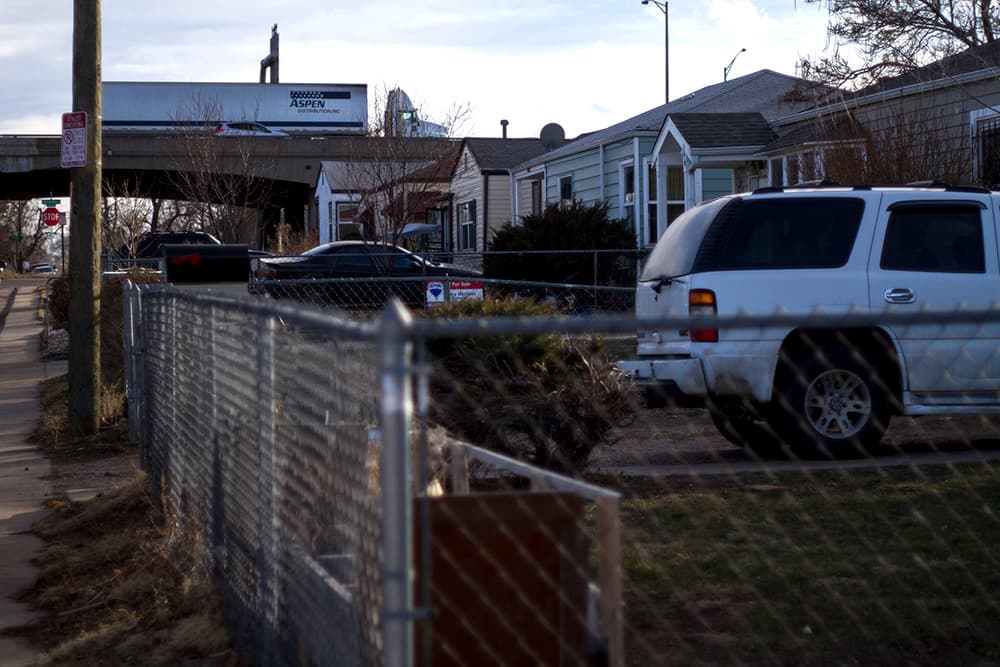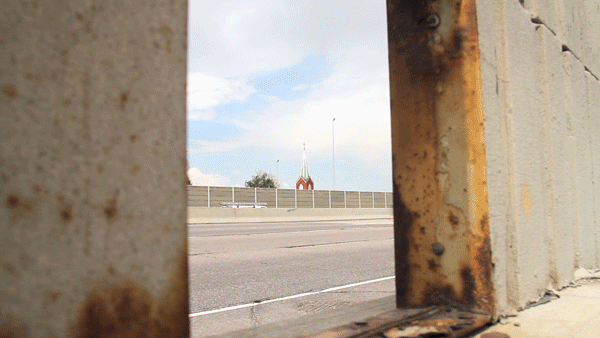
The Colorado Department of Transportation has been promising that the proposed expansion of I-70 would be a net benefit for the neighborhoods that line the highway, but it was never a given that the people who live in those neighborhoods would get construction jobs if the expansion is approved.
For decades, federal policy has not allowed a local hire preference.
It conflicted with competitive bidding policies to get the government the best price and reduce cronyism.
CDOT announced Wednesday it will be one of only nine local hire programs authorized around the country. The state transportation department received a $400,000 grant from the Federal Highway Administration to support the local hire program. That money is combined with $200,000 that CDOT had already set aside, making the total amount closer to $600,000.

That money will help find local workers and provide necessary job training ranging from basic construction skills to apprenticeship programs that will leave workers prepared for long careers in well-paid trades to English classes that help workers who already know their trades get hired on big projects.
In a press release, CDOT officials said they made a big effort to get permission to do local hiring because they heard over and over that it was a community priority.
"The importance of training and hiring workers from the neighborhoods that will be most affected by this project is a theme we have heard many times," Tony DeVito, Central 70 project director, said in the press release announcing the program. "We are very pleased to have the opportunity to pilot local hiring and to develop training programs well before construction starts so we have a workforce ready and able to deliver this critical project."
A lot of details still need to be worked out.
What will be the geographic boundary of the areas eligible for participation? Just how many jobs is CDOT promising to residents of these neighborhoods?
CDOT spokeswoman Rebecca White said the agency will set local hire requirements as part of contracts with companies that bid on the project. As for finding those potential workers, there might be an app and there might be a local hiring office in Elyria-Swansea.
"This is such a major project," she said. "$1.2 billion. 4,000 people. And the types of work we will need for this project are real career jobs. This is not just flaggers. These are real, journey jobs."
(That's 4,000 estimated jobs working on the I-70 expansion, not 4,000 local hires. The press release talks about "hundreds of local jobs.")
Candi CdeBaca of the Cross Community Coalition worries that the program sounds good but won't deliver and is meant more to silence opposition than to provide real benefit.
"It's the equivalent of the cap or the green space," she said, referring to the 4-acre park CDOT plans to build over the highway near Swansea Elementary. "It's the carrot or something that makes the whole project palatable."
CdeBaca, like many in the neighborhoods, doesn't want I-70 to be expanded and supports a re-route north of the city along the I-76 corridor.
CdeBaca said she wants to see CDOT working with organizations that already provide workforce training in the community, not spending money to reinvent the wheel, and she wants real accountability to the community about where workers are being hired.
Because training for good-paying jobs in the trades, that's something the community needs.
"We want those opportunities," she said.
Michael Smith, executive director of the Colorado Construction Institute, located right in Elyria-Swansea, said he's familiar with the skepticism, but in talks with CDOT, he believes the agency is sincere.
"I may be in a minority, but I do believe CDOT truly wants to do this," he said.
The construction institute is a non-profit workforce development institution whose classes include basic skills like job site math and reading shop drawings and a partner in the local hire program. Community College of Denver is taking a lead role.
Smith said there are looming shortages in every trade in every type of industry, with one worker coming aboard for every four nearing retirement. It's a combination of the belief that college is the only way to get ahead and the impression that construction jobs are too insecure, too vulnerable to boom-and-bust cycles.
"We have to help people understand construction jobs are good jobs with long-term career opportunities," he said. "The person who can be trained in multiple facets of construction work will never be out of work."
Smith said the workers from the neighborhood who enter the trades now will have years of work ahead of them. It's not just the I-70 expansion but also the National Western Center, the affordable housing projects and all the other change happening.
"There is so much work," he said. "We need thousands of people coming into our industry to do it."
Update: The caption has been changed to correct the name of the church.












